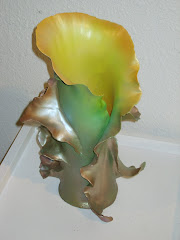So I have this kind of view on Bible-based truth claims
The "Bible" isn't an entity, but an artifact. And while it is claimed by some to have "divine" authorship, what that means is very debatable, even among believers. To most, its entirely human origins are very obvious. That would include many scholars, I'm sure. But the divinity claim, along with the deep discomfort with uncertainty wherein many humans live, gives the psychological heritage of attachment to the bible a powerful ability to offer a kind of security and authority that finally doesn't reside in it.
So when we are looking at a bible-based claim to "truth" we are looking in fact at the belief dynamic of either an individual or a group, not at Reality. There is a reason that belief is not called "knowledge", and only the more refined qualifications of belief might properly be called "faith", and that is not a religious phenomenon, but a psychological one. Contrasting belief and knowledge, we might even say that belief is necessarily incorrect even if carrying some element of knowledge.
This is why, while we *all* trust that mathematics works, eg the Pluto shot, we cannot say the same for some random tenet of say, one of the 40,000 sects of christianism active today. This is why we use science to deal with measurable commonality and have measurable results by it in the physical world. It is also why we trust science as an analytical tool in the realm of physical phenomenon.
But we are not only physical creatures, and a scientist who won't admit to that is doing the reverse mistake of a religionist who claims their bible to be a text on physics or history, even barring possible examples of inclusion. We are mental creatures as well. We produce Music and Art in many forms at our best, and human expression is empowered by emotion. But that realm is interpretive in nature, and has the quality of depth, while science is restricted to surfaces. It is this difference in domain that creates the voltage of thought that blurs the line between the two, and the perception fo what belongs to what realm.
In this day and age, and in this Country especially, perhaps, our public validation of anything has collapsed into the realm of surfaces and measurements, especially that of the bottom line in economics. Little is left in the public arena for the elevation of explorations into meaning. And yet, this is where what makes us human resides. And while that is at the core of our being, the attempts of organized religion to be the vehicle of a truly useful understanding of that actual sacredness fail very sadly. The proof of that is in both the astounding variety of sects of any world religion or less, and in the uncanny agreement of mystics from any or none of those as to our actual Nature.
But therein lies a library of books and practices best left to individual exploration, despite what might be an inevitable understanding of Unity. If there is a value in religion, then, it is in the overcoming of it in the same way that someone might overcome a zen koan. But compared to the Bible, a koan is but a few words. The Bible, any of the 20 versions available now in English, is a collections of misattributed books and all the imaginative interpretation that is saddled on it by any particular interpreter.
And while even I conclude that there is a Truth "in" it, that is only pointed to, and so well hidden that without prior knowledge it is undiscoverable, except by exhausting the mind attempting to interpret it. And that exhaustion, achieved by any method, is not only a valid and productive way to achieve something that religion might fail at doing, it may be, with some modifications, the only and the much sought after Gateless Gate. It is where we might enter the apprehension and appreciation of Awareness itself. From that point, the Bible, or any bible, can fall into its rightful context.
And while even I conclude that there is a Truth "in" it, that is only pointed to, and so well hidden that without prior knowledge it is undiscoverable, except by exhausting the mind attempting to interpret it. And that exhaustion, achieved by any method, is not only a valid and productive way to achieve something that religion might fail at doing, it may be, with some modifications, the only and the much sought after Gateless Gate. It is where we might enter the apprehension and appreciation of Awareness itself. From that point, the Bible, or any bible, can fall into its rightful context.





















9 comments:
“But that realm is interpretive in nature, and has the quality of depth, while science is restricted to surfaces.”
I don’t know what you mean. You seem to be assuming that there’s something “more” out there, that it qualifies as a deity, and that science doesn’t go deep enough to discover it, but how might you support your statement?
Not my statement to support; yours to test and explore. For my part, "Meaning" is not susceptible to the ministrations of tape measures and scales. So what of the question "Am I aware?" Where does that lead?
"Not my statement to support; yours to test and explore."
And how might I do that?
"Am I aware?" Where does that lead?
It leads to knowing that I'm aware, but it says nothing about the nature of that awareness, simply that it exists.
That's a good start. Since awareness exists, who or what is aware, if objects are "in" awareness, and yet awareness is distinguishable as seemingly different than its seeming contents?
Hume put the answer very well indeed:
"For my part, when I enter most intimately into what I call myself, I always stumble on some particular perception or other, of heat or cold, light or shade, love or hatred, pain or pleasure. I never can catch myself at any time without a perception, and never can observe any thing but the perception. When my perceptions are removed for any time, as by sound sleep, so long am I insensible of myself, and may truly be said not to exist. And were all my perceptions removed by death, and could I neither think, nor feel, nor see, nor love, nor hate, after the dissolution of my body, I should be entirely annihilated, nor do I conceive what is further requisite to make me a perfect nonentity. If any one, upon serious and unprejudiced reflection, thinks he has a different notion of himself, I must confess I can reason no longer with him. All I can allow him is, that he may be in the right as well as I, and that we are essentially different in this particular. He may, perhaps, perceive something simple and continued, which he calls himself; though I am certain there is no such principle in me."
http://www.anselm.edu/homepage/dbanach/pi.htm
It's nice that Hume said that. He made some astute observations. I happen to agree with him, even on the last point. But I didn't ask Hume. You looked at, evidently, http://www.anselm.edu/homepage/dbanach/pi.htm, not yourself. That's fine too.
I did look at myself. I quoted Hume because I agree with Hume, because he well-expressed my own observation. Perhaps, there is something that he and I aren't seeing, but I can hardly speculate on something about which I have no awareness.
Post a Comment